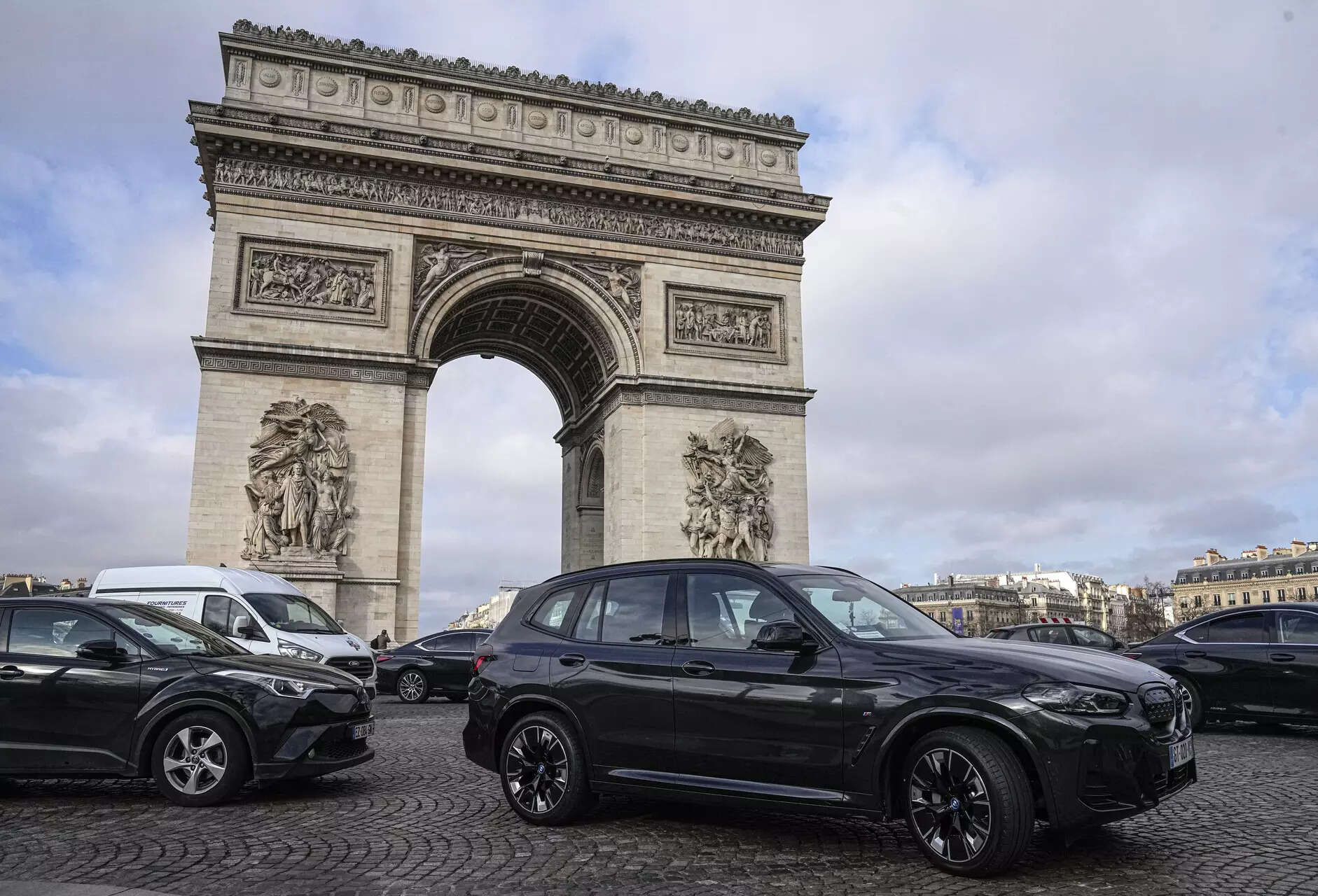
Parisians voted Sunday to muscle SUVs off the French capital’s streets by making them much more expensive to park starting next September, the latest leg in a drive by Socialist Mayor Anne Hidalgo to make the host city for this year’s Olympic Games greener and friendlier for pedestrians and cyclists.
More than 54% of the votes cast in the low-turnout election supported the measure to triple parking fees for large SUV drivers from out of town to 18 euros (USD 19.50) per hour in the city’s center, according to official results from City Hall. Only 5.7% of the 1.3 million eligible voters cast ballots at the 39 voting stations around the city.
In get-out-the-vote posts on social media, Hidalgo argued that SUVs take up too much space on narrow Parisian streets, are too polluting and “threaten our health and our planet,” and cause more traffic accidents than smaller cars. The additional fees will come into force from Sept. 1, Hidalgo said.
“The time has come to break with this tendency for cars that are always bigger, taller, wider,” she said. “You have the power to take back ownership of our streets.”
The cost for non-residents to park SUVs in Paris’ central districts, in the arrondissements numbered 1 through 11, would soar to 18 euros (USD 19.5) per hour for the first two hours, compared to 6 euros per hour for smaller cars.
After that, parking would become increasingly punitive. A six-hour stay with an SUV – enough, say, to take in a show and a restaurant – would cost a whopping 225 euros (USD 243), compared to 75 euros for smaller vehicles.
Away from the heart of the city, in Paris’ outer arrondissements numbered 12 through 20, an out-of-town SUV driver would pay 12 euros per hour for the first two hours, progressively rising to 150 euros for six hours.
The mini-referendum was open to Parisians registered to vote. The question they were asked was: “For or against the creation of a specific rate for the parking of heavy, bulky, polluting individual cars?”
Cyreane Demur, a 20-year-old student, voted in the chic 8th arrondissement that includes that car-clogged Champs-Elysees boulevard and its chaotic traffic circle around the monumental Arc de Triomphe.
Demur said heavier cars make congestion “even more complicated” and that “one must consider the ecology, the parking issues.”
But Jadine L’Orlendu, a 75-year-old voter, said SUVs “do not disturb me, they do not take more space than other cars, the parking places are marked, and people should drive what they want to drive. It’s about freedom.”
The vote follows another City Hall consultation last year on whether to ban for-hire electric scooters. The 15,000 opinion-dividing mini-machines were subsequently banished from Paris streets after nearly 90% of the 103,000 voters rejected e-scooters.
In a country of car-lovers, home to Renault, Citroen and Peugeot, Hidalgo has worked for years to make Paris less car-friendly. Motor vehicles have been barred entirely from some roads, most notably a River Seine embankment that used to be a busy highway. It’s become a central Paris haven for cyclists, runners, families and romantics since Hidalgo closed it to motor traffic in 2016.
More bike lanes are being added for the July 26-Aug. 11 Olympics and Paralympic Games that follow.
But City Hall says that as car traffic has steadily decreased, down by half since the end of the 1990s, SUVs are denting the progress and fouling the air with their outsize dimensions. City Hall says that SUV collisions with pedestrians are twice as deadly than accidents involving smaller cars. It notes that two-thirds of Parisians now don’t own a car.
City Hall’s proposed ramped-up parking prices would apply to conventional or hybrid-engined SUVs from out of town that weigh 1.6 tons or more and 2 tons or more if they’re fully electric.

